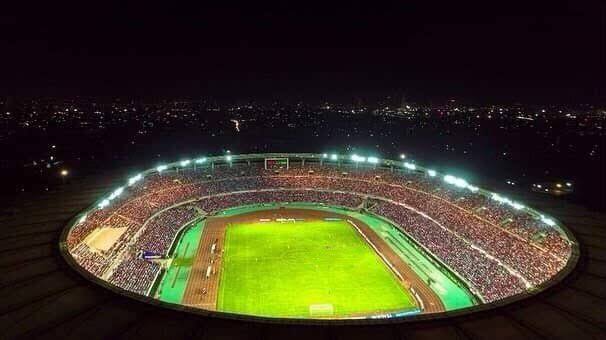Dar es Salaam. Tanzanian football heavyweights Simba SC, Young Africans (Yanga), and Azam FC may have been handed relief on the registration and use of foreign players, but the same clubs will face stricter restrictions elsewhere in the 2025/26 Mainland Premier League and the Azam Sports Federation Cup (FA Cup).
The new season is scheduled to kick off with the highly anticipated Community Shield showdown on September 16 at Benjamin Mkapa Stadium, pitting eternal rivals Simba and Yanga against each other.
The league itself begins the following day with KMC hosting Dodoma Jiji and Coastal Union welcoming Tanzania Prisons.
The mixed bag of relief and restrictions comes after the Tanzania Premier League Board (TPLB) announced major amendments to league regulations, directly affecting player registration, disciplinary procedures, and refereeing appointments.
Full Use of 12 Foreign Players Now Allowed
One of the most significant changes is the relaxation of rules on foreign players.
Previously, clubs were allowed to register up to 12 foreigners but could only field a maximum of eight in any single league or FA Cup match.
Under the revised rules, all 12 foreign players may now be included in the matchday squad at once.
This adjustment gives Simba, Yanga, and Azam all of whom boast strong squads bolstered by foreign imports the flexibility to fully utilize their investments without leaving key internationals out of competitive fixtures.
However, the TPLB has simultaneously tightened restrictions in one key area goalkeepers.
Under the new regulation, clubs are not permitted to sign more than one foreign goalkeeper, a measure aimed at protecting opportunities for domestic talents in one of the most critical positions on the pitch.
Broader Amendments Across Regulations
According to TPLB’s Acting Chief Executive Officer, Ibrahim Mwanyela, the approved changes cover several areas, including:
Regulation 8: Concerning league winners.
Regulation 11: Covering trophies and awards.
Regulation 17: Addressing match procedures.
Regulation 57: On match management.
Regulation 62: Concerning foreign players.
On foreign players specifically, the new Regulation 62 (1) states that clubs are allowed to register 12 foreign players from anywhere in the world, provided they comply with other subsections of the law.
More importantly, Regulation 62 (1.1) explicitly grants permission for all 12 foreigners to feature in the same match.
At the same time, Regulation 41 (2.3) on disciplinary matters has also been amended. Previously, any player who collected three yellow cards would automatically miss the next fixture.
Now, the threshold has been raised to four yellow cards before a one-match suspension comes into effect.
Referees From Outside Tanzania
Another notable amendment is in Regulation 39, which deals with referees. The new clause (7.1) empowers the Tanzania Football Federation’s (TFF) Referees Committee to appoint referees from outside Tanzania for Premier League matches.
This move is expected to enhance fairness, reduce pressure on local officials, and improve the credibility of match officiating in high-stakes encounters, particularly involving the league’s biggest clubs.
The committee retains exclusive authority over the appointment, replacement, and removal of referees, working in collaboration with the TFF Secretariat and within the framework of the revised regulations.
Coaching Oversight Expanded
The amendments also touched coaching and technical staff regulations.
What was previously known simply as “Control of Coaches” (Regulation 45) has now been expanded to “Control of Coaches and Other Technical Officials.”
This change reflects a growing need to hold all technical staff not only head coaches accountable for their conduct and responsibilities during league and cup fixtures.
Relief With a Twist for the Giants
While Simba, Yanga, and Azam have every reason to celebrate the expanded use of foreign talent especially given their busy transfer windows that saw the arrival of multiple international stars the other side of the coin presents new hurdles.
The restriction on foreign goalkeepers, stricter accountability for technical staff, and the increased reliance on referees from abroad all suggest that the league is tightening its framework to ensure balance and fairness.
As the curtain rises on the 2025/26 campaign, all eyes will be on whether these rule changes tilt the scales in favor of the dominant trio, or if they will open up the field for other ambitious sides such as Singida Black Stars, Namungo, and Coastal Union.
One thing is clear this will be a season shaped not only by the talent on the pitch but also by the evolving regulatory environment off it.







